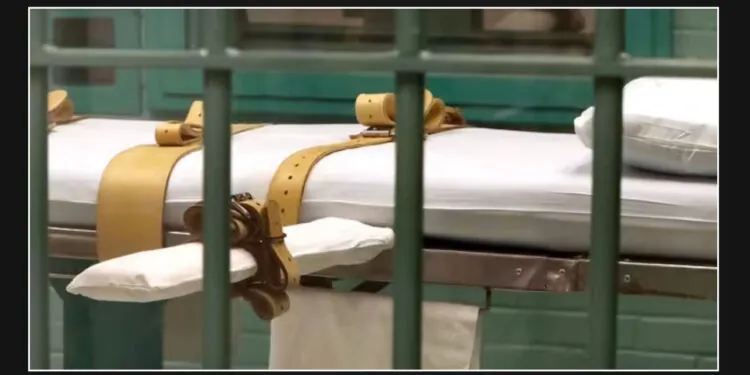In 1996, White, who was 61 years old at the time, was found guilty of the murder of twin sisters Annette and Bernette Edwards. The sisters were only 16 years old when they tragically lost their lives. It is important to note that White was not prosecuted for the killing of their mother, Bonita, which occurred during the same incident.
After discovering that he had murdered Greta Williams in 1989 and Hai Pham, a convenience store clerk, in 1995 (although he was not put on trial for these crimes), the jury decided to sentence him to death.
White has been on death row for several years now, with numerous appeals in both state and federal courts. Unfortunately, his most recent appeal to the Fifth Circuit Court of Appeals was rejected on Sunday. Currently, there is a pending petition to stay his execution at the U.S. Supreme Court as of Tuesday morning.
Joshua Reiss, the head of post conviction writs at the Harris County district attorney’s office, expressed his strong belief that the level of violence and loss of life in the case of five murders, including two teenage girls, cannot be ignored. He firmly stated that such a case warrants the use of the death penalty.
White made attempts to halt his execution by invoking Texas’s 2013 junk science legislation , which grants individuals the opportunity to seek new trials if the scientific evidence used against them has since been discredited or altered. In 2015, he was granted a temporary stay of execution based on this law.
According to White’s lawyers, if the jury had access to those factors during the trial, it could have led to a different sentencing outcome instead of the death penalty.
The argument was rejected by a divided Texas Court of Criminal Appeals. The prevailing opinion stated that the junk science law was only applicable to modified science in the conviction phase of a trial, not in the sentencing phase. Although the Texas House approved a legislation to amend the junk science statute to include the sentencing phase, the measure did not progress in the state Senate.
According to the latest psychiatric guidance, White also argued that he qualifies as intellectually disabled and, therefore, should not be eligible for the death penalty.
In his appeal to the U.S. Supreme Court, Mr. White’s lawyers argue that his case highlights the flaws in Texas’ current death penalty system. They emphasize that he possesses evidence of his intellectual disability, which the CCA (Court of Criminal Appeals) denies him the opportunity to establish. Furthermore, Mr. White has substantial evidence that could potentially lead to a sentence other than death during the punishment phase, but he is unable to present or explore it through a new writ.
According to his lawyers, none of the information they presented was ever brought before a jury or allowed to be fully explored or shared.
The courts properly addressed these claims, as argued by the state, considering White’s conviction.
Patrick McCann, White’s long-time attorney, stated that White, who is now a grandfather and was chosen to participate in the death row ministry program, has dedicated the last 28 years of his life in prison to “transforming into a better person for the right reasons – for his family and the people he holds dear.”
In an interview, McCann emphasized the importance of not overlooking any murder, stating, “Any murder is not something that should be ignored.” However, he also pointed out that the person they intended to harm may have been experiencing a psychotic episode at the time, and that the individual we see today is not the same person. “He just isn’t.”
Pham’s wife and four children under 21 years old, who had recently immigrated to Houston from Vietnam, were among his survivors. He also had family members still residing in their homeland. Pham served in the South Vietnamese Navy and moved to the United States in 1986 after the Vietnam War. This information was shared by his son, Hiep Tuan Pham, who was 17 years old when his father passed away.
In an interview, Hiep, who is now 47 years old, shared that his father’s objective was to provide them with a better life in the United States.
Hiep revealed that on the day his father was murdered, his father was filled with joy as the plans for their move to California, where he believed they could have a better life, were finally falling into place. Tragically, his happiness was abruptly cut short by his untimely death.
Hiep’s family lacked proficiency in English at the time, and he vividly recalls going door-to-door to seek assistance from his neighbors in order to cover the expenses for his father’s funeral. It wasn’t until years later that Hiep discovered the significance of Father’s Day. He grieved over the fact that he would never have the opportunity to celebrate the occasion with his father, sharing a beer together.
“I have no knowledge of him. I cannot comprehend what drove him to take the life of my father,” Hiep expressed, intending to be present at the execution alongside his wife. “All I can hope for is that he realizes the immense suffering we have endured as a result of this tragedy.”

